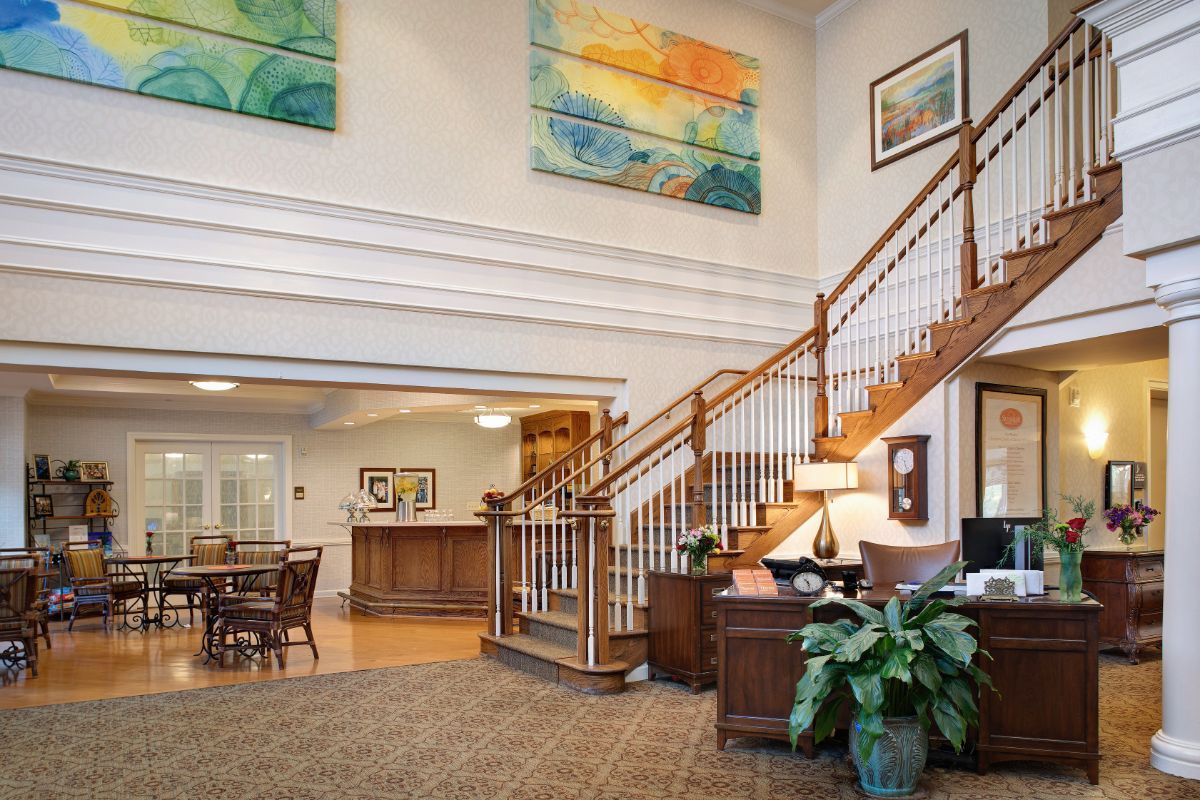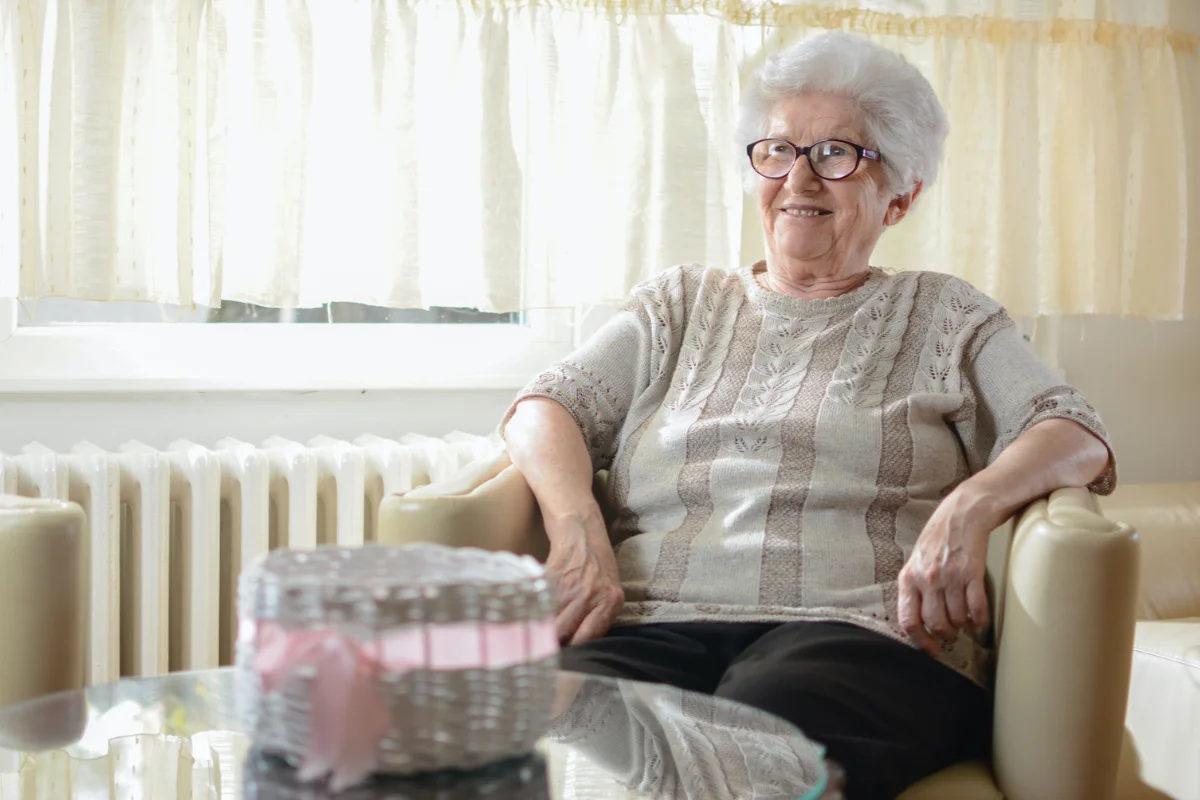Boutique Memory Care Environments That Nurture and Comfort
Boutique Memory Care Environments That Nurture and Comfort
Blog Article
All About Memory Care Solutions: Why Small Memory Treatment Houses Are a Wonderful Selection
Memory treatment solutions play a vital role in supporting individuals with Alzheimer's and dementia. Small memory treatment homes stick out for their individualized technique and intimate setting. With lower staff-to-resident proportions, these homes foster stronger links and tailored treatment. Homeowners take advantage of improved social communications and a secure environment. As families discover alternatives, comprehending the special advantages of tiny memory care homes ends up being essential. What aspects should be taken into consideration when choosing the appropriate home?
Understanding Memory Care Services
While numerous may recognize with basic elderly treatment options, comprehending memory treatment solutions is essential for households encountering the obstacles of cognitive decrease. Memory treatment particularly satisfies people with conditions such as Alzheimer's condition and other types of dementia. These solutions offer a structured environment that concentrates on enhancing the lifestyle for locals with specialized treatment and support.Memory treatment facilities are made to guarantee security and safety, often including safeguarded atmospheres to avoid roaming. Trained employee are available around the clock to assist with day-to-day tasks, drug monitoring, and individual care. Additionally, memory care programs frequently include cognitive stimulation tasks, customized to engage locals and advertise mental wellness. Families can profit from recognizing these solutions, as they enable informed decisions concerning their loved ones' care, guaranteeing that their particular requirements and preferences are attended to in a caring and encouraging manner.
The Benefits of Tiny Memory Treatment Houses
Tiny memory care homes provide distinctive advantages that can greatly boost the lifestyle for homeowners with cognitive impairments. One significant advantage is the intimate environment, which allows for individualized communications amongst personnel and citizens. This smaller sized setup promotes meaningful partnerships, lowering feelings of seclusion and anxiety usually experienced by individuals with memory issues.Additionally, the reduced staff-to-resident ratio in tiny memory care homes enables caregivers to give even more alert supervision and assistance. This method not only boosts safety yet additionally advertises a sense of safety and security for the residents.Moreover, little memory care homes can adapt quickly to the special demands and choices of each local, enabling an extra homey environment. Such an environment can encourage social involvement and involvement in activities, ultimately improving the daily experiences of those living with cognitive impairments.
Personalized Care Plans for Citizens
Individualized care strategies are crucial in memory treatment homes, as they deal with the distinct requirements and choices of each homeowner. These strategies begin with thorough evaluations performed by knowledgeable specialists, that assess cognitive capabilities, case history, and personal interests. This customized method warranties that care is not only effective yet additionally respectful of each person's self-respect and autonomy.Moreover, personalized treatment strategies are versatile, enabling changes as residents' requirements advance in time. This adaptability cultivates a complacency and experience, which is necessary for people dealing with memory difficulties. Caregivers are educated to execute these plans regularly, giving assistance that lines up with the homeowners' routines and preferences.Ultimately, individualized treatment strategies boost the lifestyle for citizens by advertising wellness, independence, and engagement, making them an essential facet of memory care solutions in tiny memory care homes.
Producing a Home-Like Setting
Developing a home-like atmosphere is important for cultivating comfort and experience in memory care settings, as it significantly impacts homeowners' emotional wellness. Little memory care homes typically focus on customized touches, such as warm color palettes, family members photos, and acquainted furnishings setups, which assist residents feel much more comfortable. Including aspects evocative a standard home, like comfortable living areas and communal locations, encourages a feeling of belonging.Moreover, making use of all-natural light and exterior rooms can boost the ambience, promoting relaxation and peace. Personnel play a significant duty in keeping this atmosphere by involving with homeowners in a compassionate way, treating them like household. Routine tasks, such as cooking or gardening, can also add to a home-like feel, using chances for residents to join meaningful experiences. Generally, producing a supporting environment sustains cognitive function and psychological stability, making it a vital element of memory care solutions.
Improved Social Interaction and Community
Boosted social interaction and community are essential elements of memory care services. By promoting customized social involvement and developing a family-like atmosphere, these solutions advertise significant links among citizens. Group activities and events further motivate engagement, aiding individuals really feel extra consisted of and supported.
Personalized Social Engagement
While social communication is important for general well-being, numerous individuals with memory disabilities typically battle to involve meaningfully with others. Personalized social involvement in memory care homes addresses this challenge by developing tailored tasks that satisfy homeowners' unique rate of interests and abilities. By concentrating on individual choices, caregivers can promote connections that reverberate deeply with everyone. Tasks such as art treatment, music sessions, and guided discussions promote cognitive excitement and psychological expression. Furthermore, tiny group settings urge camaraderie and permit even more intimate communications, enhancing feelings of belonging. This strategy not just combats sensations of seclusion however additionally encourages homeowners to maintain a sense of identity, ultimately contributing to improved psychological wellness and top quality of life.
Family-like Ambience
In a memory care setting, cultivating a family-like environment substantially enhances social interaction and constructs a sense of community among citizens. Smaller sized memory care homes frequently prioritize intimate environments, allowing homeowners to create closer connections with each other and personnel participants. This nurturing ambience advertises trust fund, which is vital for individuals with memory disabilities. Homeowners are most likely to talk and share experiences, producing an encouraging network that minimizes feelings of isolation. The knowledge of shared areas and regimens adds to a sense of belonging, even more urging social interaction (personalized memory care). In such settings, psychological bonds thrive, bring about boosted overall health and a greater quality of life for locals as they navigate their day-to-day experiences together
Group Activities and Events

Safety and Protection Functions in Small Residences
Numerous little homes designed for memory care integrate crucial safety and security functions to guarantee the wellness of locals. These homes commonly utilize safe and secure access and leave indicate prevent wandering, a common concern among individuals with memory problems. Additionally, security systems and alarm systems enhance surveillance, ensuring that personnel can without delay react to any kind of unusual activities.Interior layouts are tailored for security, with reduced threats such as sharp corners and clutter-free paths. Handrails and non-slip floor covering are typically installed to minimize the risk of falls. Personnel are trained in emergency situation methods, guaranteeing they are prepared for various situations.Moreover, personalized care strategies might consist of evaluation of specific security needs, giving tailored services for each and every local. On the whole, these safety and security features create a nurturing environment where homeowners can prosper while maintaining their dignity and freedom.
Just how to Choose the Right Memory Treatment Home
How can family members assure they choose the most ideal memory care home for their liked ones? The decision needs careful consideration of numerous factors. Initially, family members need to assess the center's personnel credentials and training, making certain that caretakers are experienced in handling memory-related problems. Next off, it's crucial to examine the home's setting, concentrating on security features and whether it promotes a sense of community and belonging. Seeing the facility can give understanding into everyday tasks and the Continue social environment, which are important for mental excitement and psychological wellness. Additionally, families need to ask about the treatment strategies used, guaranteeing they are customized to individual needs. Considering the home's location and access for family sees can add to a smoother change. By addressing these elements, families can make an educated decision that prioritizes their loved one's convenience and lifestyle in a memory care setting.
Frequently Asked Questions
What Credentials Should Personnel Members in Memory Treatment Houses Have?
Personnel in memory treatment homes ought to possess relevant certifications, experience in dementia treatment, solid interaction skills, and empathy. Continuous training in behavior administration and healing interventions boosts their ability to support locals effectively.
How Do Memory Care Services Differ From Conventional Assisted Living?
Memory care services focus particularly on people with memory disabilities, offering customized support and organized environments. In comparison, typical assisted living supplies general help with day-to-day activities, doing not have the tailored method required for those with cognitive difficulties.
What Sorts of Tasks Are Offered in Memory Treatment Houses?
Memory care homes usually supply a variety of tasks created to engage residents. Common choices include art therapy, music sessions, cognitive games, workouts, gardening, and gatherings, all focused on boosting wellness and cognitive feature.
Can Citizens Bring Their Own Belongings to Memory Care Houses?
Residents can commonly bring their very own items to memory care homes, allowing them to customize their home - personalized memory care. This technique aids create an acquainted atmosphere, advertising comfort and a sense of identity for the people

Just How Are Family Members Members Associated With the Treatment Process?
Member of the anonymous family play an essential function in the treatment process, typically taking part in decision-making, going to care meetings, and giving emotional support. Their involvement fosters a collective atmosphere, improving the resident's overall health and quality of life. While many may be familiar with general senior treatment options, understanding memory care solutions is essential for family members dealing with the challenges of cognitive decrease. These services supply a structured setting that focuses on enhancing the quality of life for locals through specialized treatment and support.Memory care centers are designed to assure security and security, typically featuring protected environments to stop straying. Personalized treatment plans are essential in memory care homes, as they provide to the distinct demands and preferences of each homeowner. Personnel participants in memory treatment homes must possess pertinent qualifications, experience in dementia care, solid interaction abilities, and empathy. Memory care solutions concentrate particularly on individuals with memory problems, giving customized assistance and organized settings.
Report this page